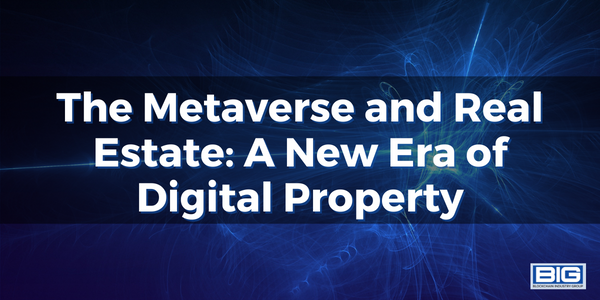
The rise of the metaverse has sparked a new era of digital property ownership and investment. In this virtual world, users can buy and sell virtual real estate, creating new opportunities for both developers and investors. As the metaverse continues to evolve and expand, the potential for virtual real estate is growing rapidly. In this article, we will explore the workings of real estate in the metaverse, including an explanation of the different types of platforms, the buying and selling of virtual land, and the development of virtual properties.
Understanding the Metaverse and its Platforms
The metaverse refers to a collective virtual space created by the convergence of digital technology and human interaction. In this virtual world, users can interact with each other through digital avatars and access virtual representations of the physical world. While there are numerous platforms available, there are three main types of metaverse platforms: social, gaming, and blockchain-based.
Social platforms, such as Second Life and VRChat, are primarily focused on social interaction and the creation of virtual communities. Gaming platforms, such as Fortnite and Minecraft, offer immersive gameplay and enable users to create and explore virtual environments. Blockchain-based platforms, such as Decentraland and Cryptovoxels, are decentralized and use blockchain technology to enable the buying, selling, and ownership of virtual land and property.
Virtual Land and Its Value
In the metaverse, virtual land is a finite resource that is bought and sold using cryptocurrencies or non-fungible tokens (NFTs). The value of virtual land is determined by a range of factors, including its location, size, and the level of development. The most valuable virtual land is often located in prime locations, such as city centers or near popular attractions.
The ownership of virtual land can provide numerous benefits, such as the ability to build and develop virtual properties, monetize virtual events, and host digital experiences. In some cases, virtual land has been sold for millions of dollars, with some investors seeing it as a potential long-term investment.
Development of Virtual Properties
Developers can create and sell virtual properties within the metaverse, including buildings, landscapes, and other assets. In some cases, virtual properties are rented out to users, providing a new revenue stream for developers and investors. Virtual properties can be customized and designed in a range of ways, from the architecture to the interior design.
The development of virtual properties has the potential to create new business opportunities, such as virtual retail stores, digital galleries, and virtual offices. Additionally, virtual properties can be used for events, such as virtual concerts or conferences, providing an alternative to traditional in-person events.
The Future of Real Estate in the Metaverse
As the metaverse continues to expand, the potential for virtual real estate is growing rapidly. Virtual real estate has the potential to offer unique investment opportunities, with the potential for high returns, global accessibility, and the ability to create personalized and unique experiences. However, it is important to note that there are risks associated with virtual real estate investment, including market volatility and scams.
10 Ways the Metaverse Will Revolutionize Entertainment
—
20 Augmented Reality and Virtual Reality Use Cases
—
A New Reality: Rise of the Metaverse
In addition, the potential for the metaverse to become more integrated with the physical world is growing. As virtual experiences become more advanced and immersive, there is the potential for virtual properties to have an impact on the physical world. For example, virtual events may become a more permanent fixture, and virtual real estate could be used for advertising or as a platform for business collaboration.
Conclusion
The rise of the metaverse has created a new frontier for real estate investment and ownership. As the market for virtual real estate continues to grow, it is important for investors to understand the workings of the metaverse, the potential benefits and drawbacks of virtual real estate investment, and the future of the metaverse in relation to the physical world.



